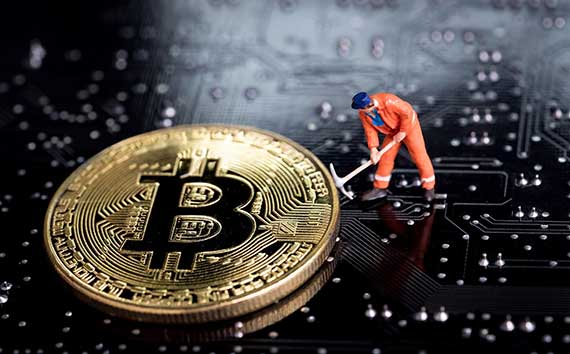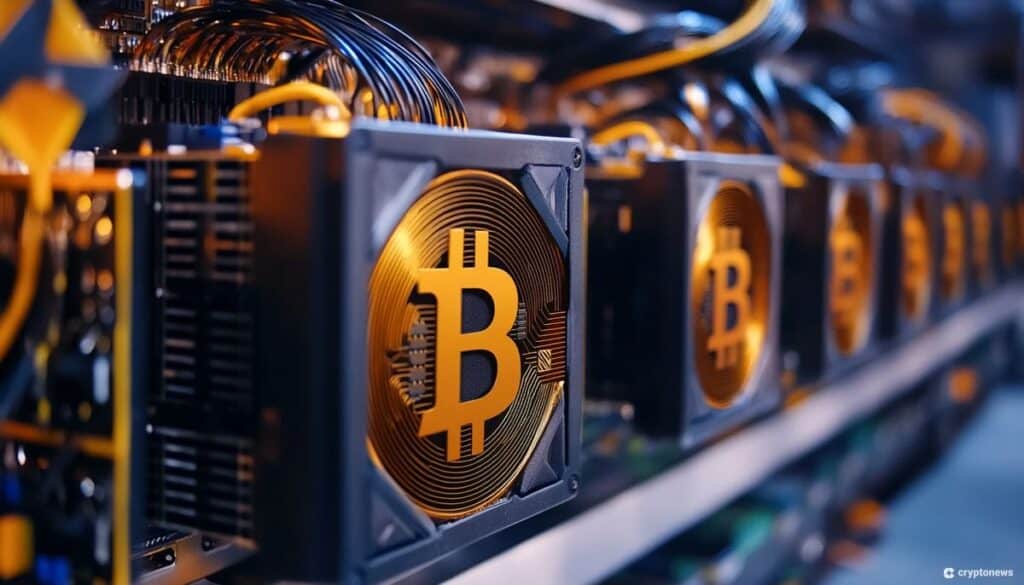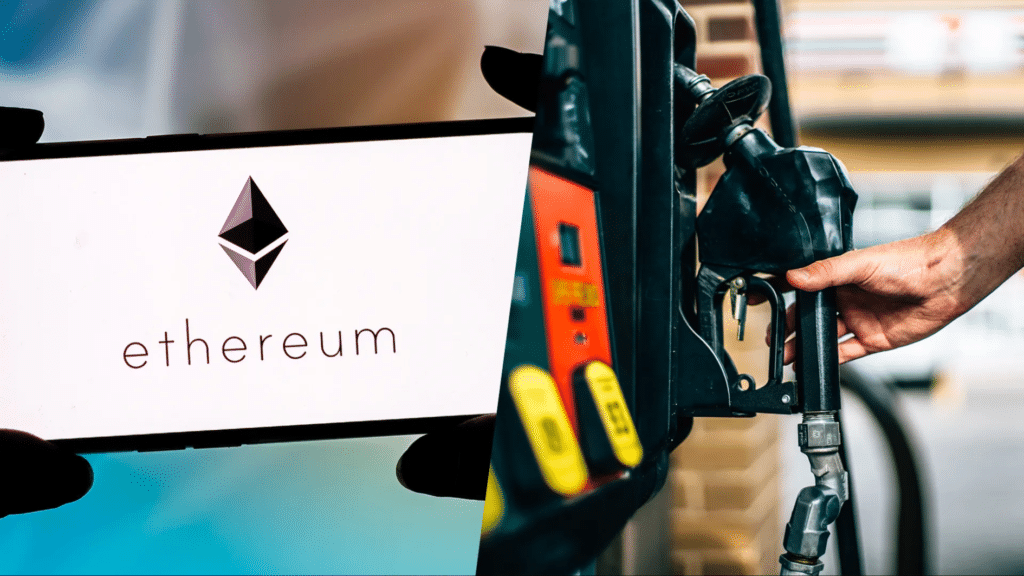Bitcoin Mining: A Beginner’s Guide to Digital Gold
Bitcoin mining is key to creating new bitcoins and checking transactions in the blockchain. It keeps the Bitcoin network safe and sound. If you’re new to digital currency mining, learning about bitcoin mining can open up big financial doors. This guide will cover the basics, including technical details, how profitable it can be, and common challenges for beginners.

Key Takeaways
- Bitcoin mining generates new bitcoins and verifies transactions.
- Understanding bitcoin mining is critical for anyone interested in cryptocurrency.
- This guide provides essential insights for beginners.
- Profitability and technical specifications are key considerations.
- Challenges in mining can be navigated with informed strategies.
What is Bitcoin Mining?
Bitcoin mining is a key part of the cryptocurrency world. It involves special computers, called miners, solving hard math problems. These problems check and record transactions on the Bitcoin network.
This process keeps Bitcoin safe and fair. It stops anyone from spending the same money twice. It also helps create new bitcoins.
Miners get new bitcoins and fees for their work. This makes mining a way to earn money. It’s a big part of why Bitcoin works well.
Miners compete to solve these math problems. The first one to solve it gets to add new transactions to the blockchain. This keeps the network safe and reliable.
The Importance of Cryptocurrency Mining
Cryptocurrency mining is more than just making money. It’s key to keeping the Bitcoin network secure and the blockchain trustworthy. Miners use powerful computers to check transactions. They only add them to the blockchain if they’re correct.
This careful checking stops bad transactions and keeps the system safe. It’s a big part of why cryptocurrencies are reliable.
Also, mining helps make cryptocurrencies more decentralized. This means they’re harder to control or cheat. Every new block mined adds to the ledger, making it harder for hackers to change things.
But mining isn’t just for Bitcoin. It’s also important for other digital currencies. These currencies use similar mining methods. This makes them more appealing and encourages new ideas and competition.
| Aspect | Role in Network | Impact |
|---|---|---|
| Transaction Verification | Validates and records transactions | Ensures accuracy and builds trust |
| Network Security | Prevents unauthorized access | Protects integrity of the blockchain |
| Decentralization | Reduces control by any single entity | Increases resistance to fraud |
| Support for Altcoins | Enables diverse cryptocurrencies | Fosters growth in the crypto ecosystem |
Understanding Blockchain Technology
Blockchain technology is the core of Bitcoin and other cryptocurrencies. It’s a distributed ledger that tracks every transaction on a network of computers. Each block in the blockchain links to the one before it, creating a secure, unchangeable chain of data.
The decentralized nature of blockchain boosts transparency and cuts down fraud risks. Knowing how blockchain works is key for those into Bitcoin mining. It shows why cryptocurrency is both practical and safe.
To really get blockchain, consider these points:
- Security: Blocks are locked with cryptography, making data changes hard without network agreement.
- Transparency: Everyone can see the whole ledger, leading to more accountability.
- Efficiency: Transactions are faster than traditional banking, which often needs middlemen.
In short, understanding blockchain opens up many chances in the crypto world. It shows blockchain’s big role in today’s finance.
| Feature | Details |
|---|---|
| Decentralization | Eliminates single points of failure, distributing control across a network. |
| Immutability | Once a block is added, it cannot be changed or deleted. |
| Platform Independence | Can be used in many industries, not just finance. |
| Cryptography | Keeps data safe and private with advanced encryption. |
Getting Started with Bitcoin Mining
To start with bitcoin mining, it’s key to know about mining hardware and software. Making the right choice can greatly affect how well you do. Miners who pick the best tools can get better results.
Choosing the Right Mining Hardware
There are different types of mining hardware. You can choose from ASICs, GPUs, and FPGAs. ASIC miners, like those from Bitmain and MicroBT, are very efficient for bitcoin mining. GPUs, used for gaming, are versatile but might not be as profitable.
When picking the best mining rigs, look at hash rate, energy use, and cost. This helps you get the most out of your mining equipment.
Understanding Mining Software Options
Mining software is crucial for managing your mining. There are many options, each with its own features. These include mining management, remote monitoring, and support for mining pools.
Popular choices are CGMiner, BFGMiner, and EasyMiner. Make sure the software works well with your mining hardware. Knowing what your mining software can do can improve your performance.
| Mining Hardware | Type | Key Features | Efficiency |
|---|---|---|---|
| Antminer S19 | ASIC | High hash rate, low energy consumption | Approximately 95 TH/s |
| MSI RX 580 | GPU | Versatile for gaming and mining | Approximately 30 MH/s |
| Xilinx FPGA | FPGA | Customizable for varying applications | Varies based on configuration |
How to Calculate Mining Profitability
Understanding mining profitability is key for those interested in bitcoin mining. It involves looking at several factors that affect earnings. A detailed calculation is vital for making smart decisions.
Factors Influencing Mining Profitability
Many things can impact mining success. Key factors include:
- Electricity Costs: Mining needs a lot of power, so costs are a big deal.
- Mining Hardware Efficiency: Better hardware means more effective mining and higher profits.
- Bitcoin Market Price: Price changes can affect mining earnings.
- Pool Fees: Fees from mining pools can cut into rewards.
- Hash Rate: This shows how many guesses the rig can make per second. A higher rate means more chances to mine a block.
- Difficulty Adjustment: Changes in the Bitcoin network’s difficulty can change rewards over time.
Using Mining Calculators
Mining calculators are great profitability tools for miners. They let miners input data like:
- Hash rate
- Electricity costs
- Pool fees
- Current bitcoin price
Tools like bitcoin mining profitability calculators from sites like WhatToMine or CryptoCompare can estimate daily, monthly, or yearly earnings. Using these tools helps in planning in the competitive mining world.
| Factor | Description | Impact on Profitability |
|---|---|---|
| Electricity Costs | Costs associated with powering mining hardware | High costs reduce overall profits |
| Hardware Efficiency | Performance capability of mining equipment | More efficient hardware increases rewards |
| Bitcoin Market Price | Current value of bitcoin in the market | Higher prices increase profitability |
| Pool Fees | Fees charged by mining pools for participation | Can significantly decrease net earnings |
| Hash Rate | Number of attempts to solve a block per second | Higher rates improve chances of success |
| Difficulty Rate | Adjustment based on network competition | Affects potential rewards over time |
Joining a Bitcoin Mining Pool
Joining a bitcoin mining pool is a smart move for miners wanting to make more money. By working together, miners can pool their computing power. This makes it easier to mine new blocks and get rewards more reliably.
The advantages of mining pools include sharing the work and rewards. This helps reduce the ups and downs solo miners face. In a pool, miners get more consistent payouts based on their share of the work. This makes earnings more predictable and often more frequent.

It’s important to understand the specifics of different pools to make the most money. Miners should look at pool fees, payout rules, and the pool operators’ reputation. These factors affect how much money a miner can keep after paying fees.
| Mining Pool Feature | Solo Mining | Mining Pool |
|---|---|---|
| Risk | Higher | Lower |
| Reward Consistency | Inconsistent | More Consistent |
| Initial Setup Cost | High | Moderate |
| Payout Frequency | Rare | Frequent |
The benefits of joining a pool are clear for miners aiming for a strategic mining approach. By joining a group, miners face less risk, get more stable rewards, and stay competitive in a growing network.
Exploring ASIC Miners for Maximum Efficiency
]As the world of cryptocurrency grows, miners look for better ways to make money. Learning about ASIC miners can really help. These machines are better than regular computers because they only mine cryptocurrencies.
What Are ASIC Miners?
ASIC miners are made just for mining cryptocurrencies. They have special chips that make them very fast. This means miners can make more money with less effort. Some ASIC miners work only with Bitcoin, while others can mine different cryptocurrencies.
Advantages of Using ASIC Miners
Using ASIC miners has many benefits, especially for those who want to do well in mining. Here are some key advantages:
- Enhanced Efficiency: ASIC miners solve mining problems much faster than other devices.
- Lower Energy Consumption: They use less power to mine a bitcoin, which saves money.
- Reliability: ASIC miners are built to last, so they work well for a long time.
- User-Friendly: Many ASIC miners are easy to set up, even for beginners.
In short, knowing about ASIC miners and their benefits can help miners succeed. By choosing the right ASIC mining devices, people can improve their mining efficiency. This can lead to more rewards in the competitive world of cryptocurrency.
Setting Up a Cryptocurrency Wallet
Getting a cryptocurrency wallet is key for anyone into Bitcoin trading or storage. There are many wallet types, each with its own security level and user needs. Knowing your options is crucial for keeping your investments safe and easy to access.
Types of Cryptocurrency Wallets
Exploring Bitcoin wallets, you’ll find two main types: hardware and software wallets. Each has its own benefits and downsides. Here’s a quick look at the main wallet types:
| Wallet Type | Description | Security Level |
|---|---|---|
| Hardware Wallets | Physical devices like Ledger and Trezor that store private keys offline. | High |
| Software Wallets | Applications such as Exodus and Electrum allowing easier access for daily transactions. | Medium |
| Mobile Wallets | Apps for smartphones providing portability and convenience. | Medium |
| Web Wallets | Cloud-based wallets accessible through web browsers. | Low to Medium |
Choosing the Right Wallet for Beginners
For beginners, picking the right wallet can be tough. It’s important to choose wallets that are easy to use and secure. Coinbase and Blockchain.com are great for beginners because they’re easy to use and safe. Think about these things before you decide:
- Transaction Fees: Check the costs of sending and receiving money.
- Security Features: Look for wallets with two-factor authentication, encryption, and backup options.
- Customer Support: Good support can help a lot when you run into problems.
- Ease of Use: A simple design helps beginners avoid confusion.
Common Challenges in Bitcoin Mining
Bitcoin mining comes with several challenges that can affect how much money you make. Some key challenges in Bitcoin mining are:
- High Energy Costs: Mining uses a lot of energy, which can be very expensive.
- Fluctuating Bitcoin Prices: The price of Bitcoin can change a lot, which can hurt your profits.
- Hardware Malfunctions: Mining gear can break down, causing problems and extra costs.
- Increasing Mining Difficulty: More miners mean you need more power to solve blocks.
These obstacles to cryptocurrency mining are tough for new miners. They often don’t know much about the tech or the market. This can lead to unexpected Bitcoin mining issues.
Knowing about these challenges can help miners set better goals and plan their mining activities wisely.
| Challenge | Description | Impact |
|---|---|---|
| High Energy Costs | Significant power consumption from mining rigs. | Increased operational expenses. |
| Fluctuating Bitcoin Prices | Market instability affecting profit margins. | Potential loss in investment value. |
| Hardware Malfunctions | Breakdowns in mining equipment leading to downtime. | Interruption of mining efforts and additional costs. |
| Increasing Mining Difficulty | More computational power required to mine new blocks. | Lower chances of successfully mining rewards. |
Future of Bitcoin Mining
The future of Bitcoin mining will be shaped by new tech, changes in laws, and green energy. As mining evolves, miners need to keep up with the latest tech to stay ahead. This means using new hardware and software.
Soon, there will be more focus on being eco-friendly. Miners might use cleaner energy sources to cut down on pollution. This is important because more people are talking about saving the planet.
New ideas like cloud mining and hybrid mining will help more people get involved. These ideas make it easier for smaller miners to join in. This could make the mining world more diverse and welcoming to all.

The future of Bitcoin mining will also focus on finding ways to make money and protect the environment. It’s important to understand these changes to succeed in the ever-changing world of Bitcoin mining.
| Trends | Description | Potential Impact |
|---|---|---|
| Adoption of Renewable Energy | Increased reliance on solar, wind, and hydroelectric power sources in mining operations. | Reduced operational costs and environmental impact. |
| Cloud Mining | Leasing computational power from remote data centers instead of owning hardware. | Lower entry barriers for newcomers and diversification of mining power. |
| Hybrid Mining | Combining traditional mining with alternative approaches to optimize profits. | Increased adaptability in changing market conditions. |
| Regulatory Variations | Diverse regulations across different countries regarding Bitcoin mining. | Impact on operational feasibility and compliance costs. |
Conclusion – Bitcoin Mining: A Beginner’s Guide to Digital Gold
Bitcoin mining offers both chances and hurdles that need a deep understanding. A detailed look shows that knowing the tech, setting up gear, and software is key. This knowledge helps newcomers get ahead in the fast-changing world of crypto.
Also, mining insights show the need to adjust plans as the market changes. Things like energy costs, mining difficulty, and rules can change how much you make. So, keeping up with new trends and tech is vital for success.
In the end, Bitcoin mining can be a good way to invest and earn. As more people join, knowing how mining works will help them make smart choices. This field is full of chances and is worth exploring.
FAQ
What is Bitcoin mining?
Bitcoin mining uses special computers to solve hard math problems. These problems check and confirm Bitcoin transactions. Miners who solve these problems get new bitcoins and transaction fees.
Why is cryptocurrency mining important?
Mining keeps the blockchain secure and honest. It stops bad transactions and makes the currency fair. This is true for many cryptocurrencies, not just Bitcoin.
How does blockchain technology work?
Blockchain is a shared ledger that records all transactions. Each block links to the last one, making a chain. This makes transactions safe and honest, which is key for cryptocurrencies.
What factors should I consider when choosing mining hardware?
Look at the miner type (ASIC, GPU, or FPGA), its hash rate, energy use, cost, and efficiency. This helps you pick the best hardware for profit.
How can I calculate mining profitability?
To figure out mining profits, think about electricity costs, hardware efficiency, bitcoin prices, and pool fees. Mining calculators can also estimate your earnings.
What are the advantages of joining a Bitcoin mining pool?
Mining pools let miners work together, increasing their chances of getting rewards. This way, payouts are more steady and less volatile than solo mining.
What are ASIC miners and their benefits?
ASIC miners are made just for mining, especially Bitcoin. They’re more efficient, have higher hash rates, and use less energy than other setups. They’re great for serious miners.
What types of cryptocurrency wallets are available?
There are many wallets, like hardware ones (Ledger, Trezor) for safe offline storage, and software ones (Exodus, Electrum) for daily use. Mobile and web wallets offer different levels of security and ease.
What challenges do miners face in Bitcoin mining?
Miners deal with high energy costs, changing Bitcoin prices, hardware problems, and rising mining difficulty. Knowing these challenges helps in making better mining plans.
What is the future outlook for Bitcoin mining?
Bitcoin mining’s future will depend on tech advancements, laws, and green energy use. Cloud mining and hybrid setups might become more common to solve environmental issues.




